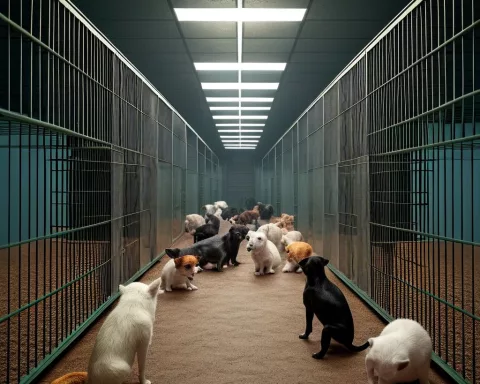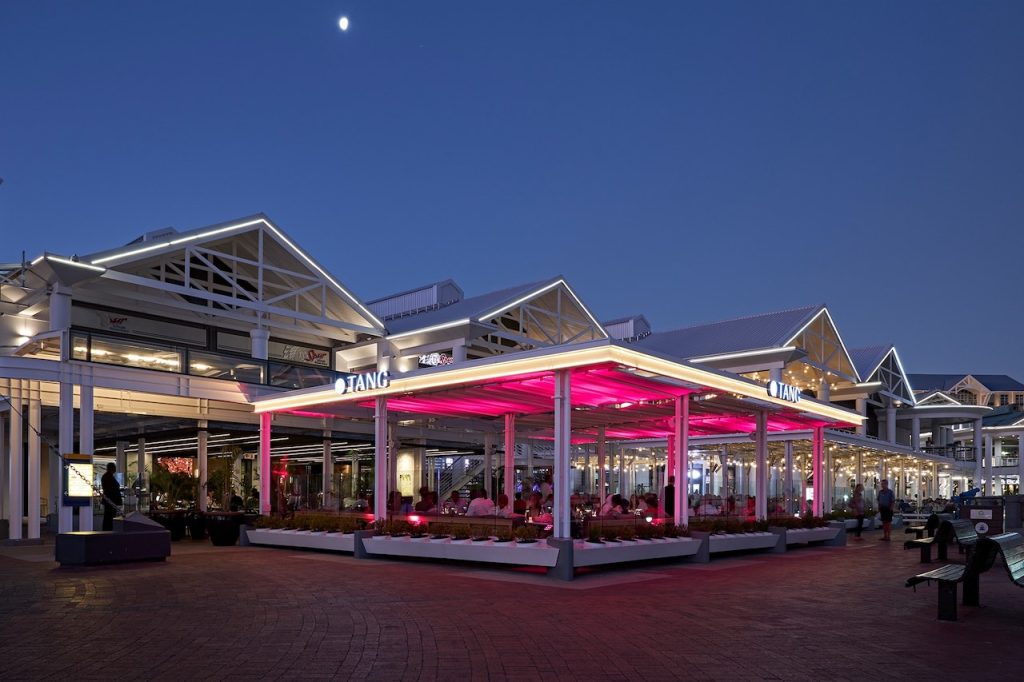Cape Town News
South Africa is facing serious accusations that it knew about Hamas’ attack on Israel before it happened. Minister Ronald Lamola strongly denied these claims, calling them “false propaganda” meant to hurt South Africa’s reputation as a champion of human rights. He emphasized that no officials in South Africa were aware of the attack and vowed to protect the country’s standing in the world. This situation comes during already tense relations with the United States, which has imposed tariffs on South African goods, adding to the complexity of global politics. Despite these challenges, South Africa remains committed to its values of justice and human rights.
When helping animals in South Africa, it’s important to choose the right organization. Look for groups that focus on spaying and vaccinating pets, have qualified vets, and are open about their finances. Be cautious, as starting a rescue is easy, but many lack proper oversight, allowing bad practices to thrive. Always visit the shelter to see if animals are cared for well and avoid any organization that pressures you for money or makes adopting pets too simple. By asking questions and being alert, you can support genuine efforts to help animals in need.
In the colorful BoKaap neighborhood of Cape Town, a remarkable 150yearold well has been discovered during construction work, revealing a treasure trove of history. This ancient well connects the past to the present, showcasing the area’s rich cultural heritage linked to the Cape Malay community. The City of Cape Town is dedicated to preserving this significant find while developing the BoKaap Market, ensuring that progress respects the stories and memories woven into the neighborhood. This discovery not only adds depth to BoKaap’s narrative but also emphasizes the importance of honoring history as the city grows.
The CAPS curriculum is like a strict school rulebook that focuses on memorizing facts instead of sparking creativity and critical thinking. This can make it hard for kids to gain the skills they’ll need in a future filled with robots and new technology. A father, Gasant Abarder, worries that even though his talented daughter does great in school, traditional learning might not be enough for her to succeed in a changing world. To help kids prepare, parents and teachers must look beyond the classroom and encourage fun activities that inspire imagination and problemsolving. By doing this, we can help children grow into confident creators and thinkers ready to face whatever comes next.
Cape Town is getting ready for some important water maintenance that might cause temporary disruptions. Residents are encouraged to store water in clean containers and use less water for things like showers and washing. The Blackheath Water Treatment Plant will be undergoing annual maintenance, which means there will be less drinking water available for a short time. It’s important for everyone to work together to save water and stay informed about any changes. By taking these simple steps, the community can help ensure that everyone has enough water during this time.
Solly Malatsi, South Africa’s Minister of Communications, is passionately fighting for fairness on TikTok. He wants the platform to expand its Creator Fund to include South African creators, who bring so much creativity and energy to global youth culture but currently miss out on financial rewards. Many talented South African creators, like Lasizwe Dambuza, face barriers that prevent them from earning money like their international peers. Malatsi’s push for change aims to ensure that African creativity is recognized and valued, paving the way for a more inclusive digital world. His efforts highlight the importance of appreciating and rewarding diverse voices that shape our culture.
The Department of Water and Sanitation (DWS) is working hard to manage rising water levels at important dams like the Vaal Dam. They are opening sluice gates to control the flow of water, keeping a close watch on levels, and warning nearby communities to evacuate if necessary. With the Vaal Dam over 111% full, the DWS is releasing water carefully to prevent flooding downstream. Local families are banding together, moving their belongings to safety, showing their strength and determination as they face nature’s challenges.
Cape Town has been hit hard by a huge downpour, turning roads into rivers and causing serious flooding everywhere. Major routes like Nelson Mandela Boulevard and the N1 are submerged, making travel nearly impossible. Residents are sharing scary stories of navigating the chaos, with some areas completely blocked by mud and water. Local authorities are urging everyone to stay safe, avoid driving, and report dangerous conditions. This severe weather shows both the city’s struggles and the strength of its people as they come together to face nature’s fury.
Cape Town is a magical place for families looking for fun and adventure! You can visit the amazing Cape Point and Boulders Beach to see stunning views and playful penguins. The Two Oceans Aquarium will take you underwater, where you can meet colorful fish and even touch some! At the World of Birds, kids can get close to cheerful monkeys and beautiful birds. Plus, the Rondevlei Nature Reserve is perfect for spotting birds and learning about nature. With so many exciting attractions, your family will create unforgettable memories in this vibrant city!
The entry of Starlink, Elon Musk’s satellite internet service, into South Africa is facing tough challenges due to local laws that require foreign companies to partner with local investors. Critics argue that these rules slow down internet access, especially in rural areas. Supporters, like former politician Tony Leon, believe that easing these regulations could boost technology and improve relations with the U.S. However, Starlink recently withdrew its application to operate in the country, raising concerns about how South Africa can attract foreign investment while addressing historical inequalities. This debate highlights the struggle between supporting local interests and embracing new technology for a better future.
The Trump administration’s costcutting efforts, led by the Department of Government Efficiency (DOGE), are shrouded in mystery, raising alarms about honesty in government. With major cuts to global aid, especially in health and education, trust in the administration is fading. Many worry that the figures reported as savings are misleading, and the lack of detailed information on contracts only adds to the confusion. As legal battles unfold, the need for clear communication and accountability becomes even more urgent, reminding us that open governance is crucial for public confidence.
Major supermarket chains like Shoprite and Checkers are recalling Heartland Foods cereals because some labels had wrong nutritional information. Even though they didn’t get any complaints, they want to be honest and keep customers safe. Shoppers can easily return the affected cereals for a full refund, no receipt needed! This recall shows how much these stores care about their customers and keeping food safe.
The South African housing market is a tale of two cities. Cape Town’s home prices have shot up by 25%, attracting many buyers despite the rising cost of living, while Johannesburg’s prices have climbed more modestly at 12%, making it a tempting option for those seeking better economic stability. Many people are reconsidering where to live, with some returning to Johannesburg for a sense of comfort and affordability. As economic pressures weigh heavily, both cities tell a story of resilience and adaptation as South Africans navigate their changing world, searching for a place they can call home.
Cape Town’s ‘Invested in Hope’ Budget for 2025/26 is a big plan to help the city and its people. With R39.7 billion set aside, the budget focuses on making essential services like water and electricity more affordable for lowerincome families. Mayor Geordin HillLewis shared this vision on a sunny morning, aiming to improve community safety by adding more police officers and reshaping the city’s infrastructure. While some celebrate these changes, others express concerns about added costs and the need for better crime prevention. Overall, this budget hopes to pave the way for a brighter future for all Cape Town residents.
The South African Social Security Agency (SASSA) is a vital lifeline for many families, offering essential financial help like childcare grants, support for the elderly, and disability benefits. Despite facing challenges such as fraud, SASSA is dedicated to making sure help gets to those who need it most. With new online tools and improved card systems, SASSA is working hard to modernize its services and fight corruption. As it continues to support South Africa’s vulnerable citizens, SASSA’s commitment shines through, bringing hope and aid to countless lives.
Join the excitement at Kirstenbosch Gardens for a magical movie event featuring Ryan Reynolds! Enjoy films like “Deadpool,” “IF,” and “The Proposal” under the stars, surrounded by the stunning beauty of nature. With picnic vibes and special ticket discounts, it’s the perfect way to spend an evening with friends and family. Bring your blankets and snacks, and get ready for an unforgettable experience filled with laughter, adventure, and romance! Don’t miss this chance to watch great movies in a breathtaking setting!































